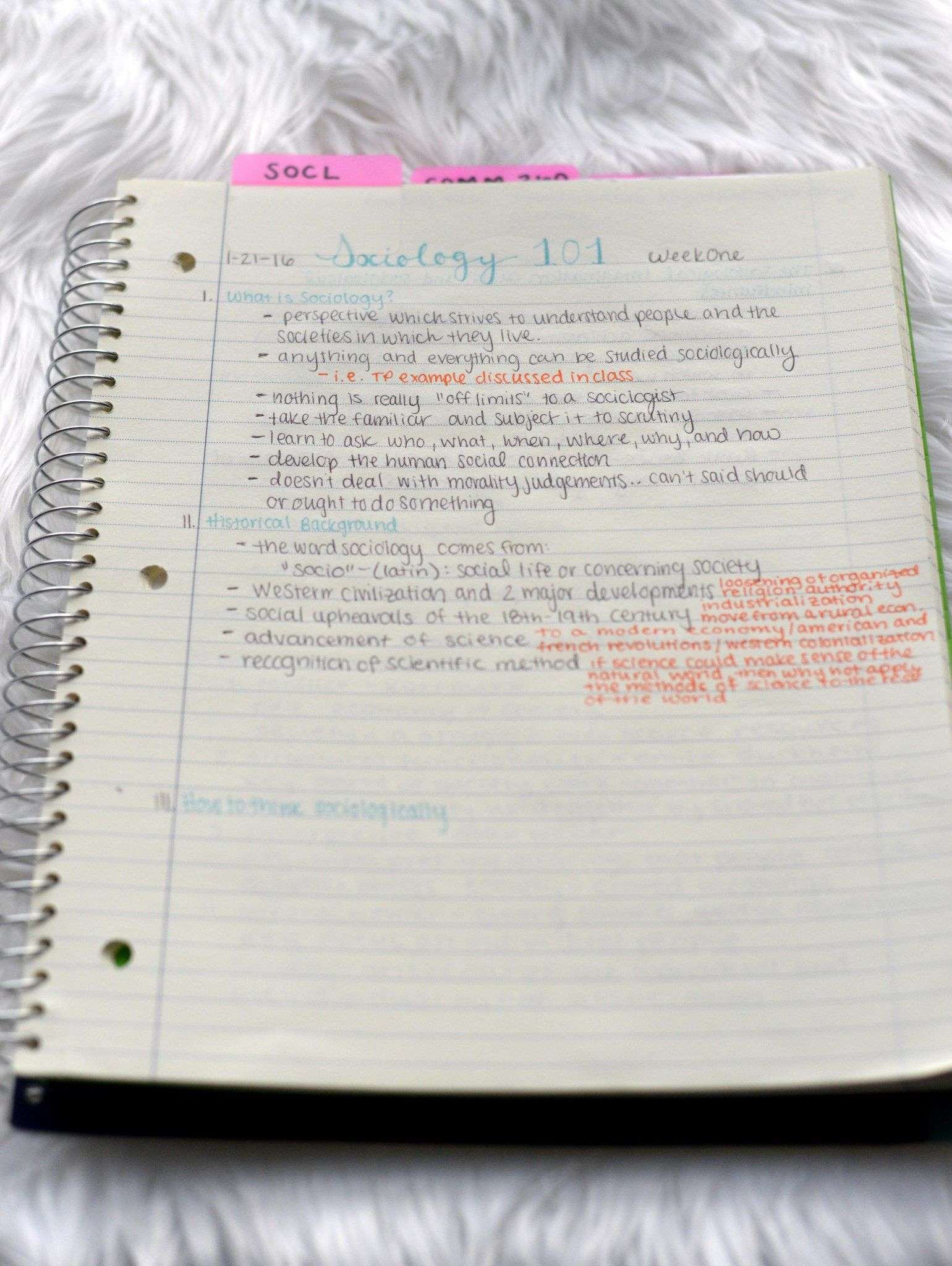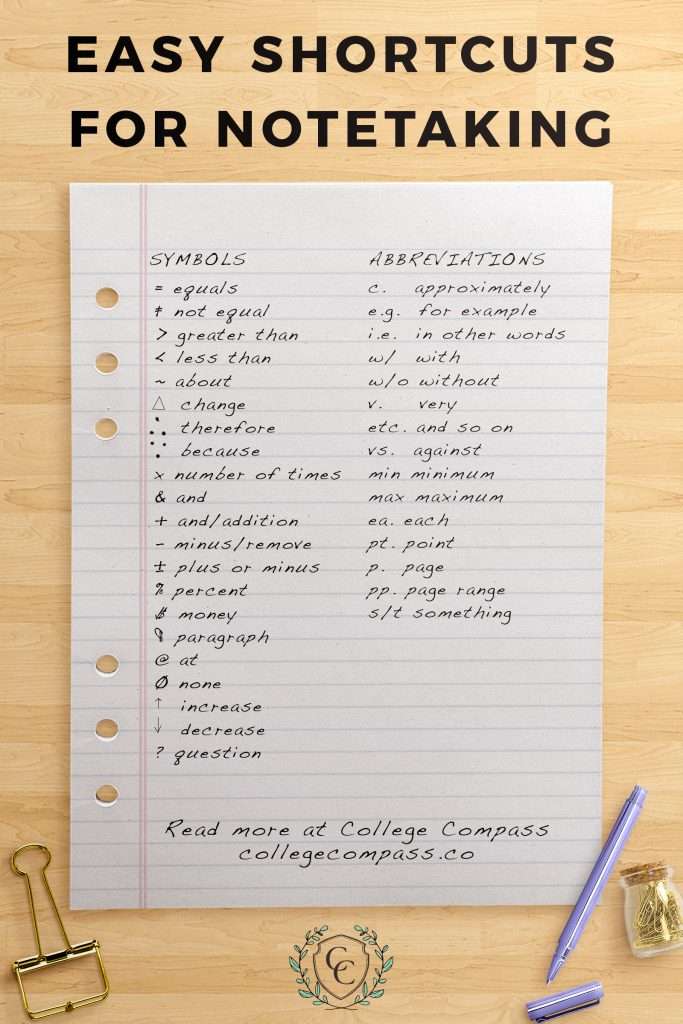Check Your Notes For Any Errors
For your note-taking to be effective, it needs to be accurate. And so, every time you finish a chapter or section of text, its important that you check your notes thoroughly for any errors or inaccuracies.
This is particularly important for subjects that have lots of technical spellings, such as scientific terms in Physics and Chemistry, as well as names of important figures in subjects such as History and Politics.
Using your textbook, revise your notes to check for accuracy in your dates, facts and figures, spelling, and key terminology. These are all important details you cant afford to miss or recite incorrectly in the future.
You should also sense-check the entire section of notes, ensuring that what youve written really does make sense, so you know that when you return to your notes in a few weeks or even months, youll be able to understand exactly what you meant.
What Does It Look Like
The paper is divided into 3 sections: a 2.5 margin to the left, a 2 summary section on the bottom, and a main 6 in-class note section.
What Are The 5 Rs Of Note Taking
The first thing you should know when learning how to take notes in college is the 5 Rs of note taking. According to Penn State University, these are the 5 Rs:
1. Record: Write down any important or relevant information during your lecture. Your professor wont always tell you which information is meaningful, so do your best to learn how to determine what matters and whats just extra details.
2. Reduce: After your lecture is over, go over your notes and condense them into a summary with the key points. Read our blog on how to write a precis if you need help with the summarization.
3. Recite: During your study sessions, you want to be able to recall or recite the information without looking at your notes. Use them for memorization.
4. Reflect: As you read over your notes later, you want to think about them in a critical way and be able to relate them to the overarching themes of your course and even the world.
5. Review: Always take some extra time to review the notes youve taken after each lecture while theyre still fresh in your mind. This way, if you forgot to write something down you can add it in and youll also get a head start on studying.
Read Also: Can I Join The Airforce And Go To College
Why Should You Use Your Computer To Take Notes
You have probably heard it said that computers are a poor tool for taking notes. You can’t use them for creativity. It will hurt your hand, etc.
I was pretty surprised by these stories, so I decided to do my own research and see how laptops stack up as note-taking tools compared to pen and paper. Below is what I found. Hopefully, this goes into more detail than you’ve been able to find elsewhere – or reinforces what you already knew.
The study is based on the idea that students have become increasingly dependent on laptops and Internet access to take notes. Were now in a situation where, rather than learning how to write longhand, students are being taught or even worse forced to use computers to take notes.
In addition, this also means students could be at risk of losing the important skill of effective note-taking. Computers can indeed help us with information overload .
But even more important is the ability to work without a computer. The practice of taking notes by hand is one that many students have given up in favor of computers, tablets, and smartphones.
Some of these students say that using pen and paper is just too inconvenient. In contrast, others argue that laptops and phones allow for quick and easy note-taking, with the ability to apply abbreviations or symbols to text.
Considering laptops are much more versatile than writing implements, note-taking with a computer has become the popular way to create study guides.
AUTHOR:Sami Khan
Highlight The Key Point

What is the key point that the professor is making? Write that down, says Dr. Jan Yager, a professor and author who is writing a book on how students can make their time in college more efficient. Make sure that for each and every class or lecture that you attend, you have one overriding concept that is behind that class. Key points will not only make your review time much easier, they will also help you actively understand the point of each lecture.
Read Also: Cape Fear Community College Financial Aid
Notes Arent Just For Class Time
Take notes on the chapters youre supposed to read, take notes in your notes when youre looking over them after class! Writing things down is more helpful than you probably realize, and youll thank yourself for it when test time comes.
What advice do you have for students on how to take notes in college?
Better Grades Start With Better Notes
Taking organized and thoughtful notes can help improve your understanding and recall of what you have learned in class. Try these methods of note taking in your next classes and see which one works best for you!
Check out our video for more tips on how to boost note-taking confidence.
To learn other ways to make school a breeze, visit the resource section or learn how Oxford Learnings tutoring programs can help you build skills to become a better learner.
You May Like: Universities With Low Gpa Requirements
How To Take Notes In College
Taking good class notes is one of the most important things you can do. More likely than not they will be the source of most of your exam questions. You want to make sure you have a consistent method of taking them.
Every professor can be different both in terms of the materials they use and how they present them.
Some may use slides and provide students with a link to download them in advance. Others might provide a printout or a downloadable PDF. Most will write on a whiteboard. Some just talk.
Understand how each professor conducts their lecture and what materials they use.
As we will discuss later, you will want to start studying for exams from the very first week of classes.
Know how you are going to organize the materials for each class as soon as you can. Get everything for each class in one central place in sequential order. That might include written notes, handouts, PDFs, whatever else.
That can be a spiral notebook, or a laptop or iPad using the word processor or note app of your choice. Divide it up into logical sections that will be easy to review.
Have a system of referencing and storing your materials that works best for each class.
What Is The Best Way To Take Notes In Classes
If you want your notes to be concise and brief, use abbreviations and symbols. Write in bullets and phrases instead of complete sentences. This will help your mind and hand to stay fresh during class and will help you access things easier and quicker after class. It will also help you focus on the main concepts.
Read Also: Is Ashworth College Recognized By Employers
When Should You Use This Note
This method can be used in a variety of situations but works best if the lecture or class follows a relatively clear structure.
Pros
- Highlights the key points of the lecture in a logical way
- Ease of use allows the students to focus
- Reduces the reviewing and editing time
- Gives a proper and clean structure to your notes
Cons
- Not suitable for subjects like chemistry and math that comprise of formulas and charts
- Doesnt work well if the attended lecture doesnt follow a certain structure
Ready To Start Your Journey
- Using a tried and true college note-taking method can boost academic performance.
- Handwritten and digital notes offer unique pros and cons.
- Students’ note-taking needs are unique what works for one student may not help another.
- Learners should experiment with different college note-taking methods.
Developing effective study skills is critical for academic success. While it may take some trial and error, students who take the time to find which note-taking methods work best for their academic needs can improve their understanding in the classroom and boost their grades.
The following guide provides an overview of several popular note-taking methods. It also takes a look at the pros and cons of handwritten and digital notes. Read on to learn some helpful note-taking tips.
Don’t Miss: Cheapest Universities In Chicago
How To Take Notes Effectively In College
Do you know how to take notes? Or maybe I should rephrase that. Do you know how to take effective notes? You see, anyone can take notes. But, developing a system that works for you is a skill many students are lacking.
This is no fault of their own. Some students may have been able to get away with never taking notes in high school, but college is different.
The ironic thing about college is you are going there to learn. However, many of the academic skills you need to be a good learner are not actually taught to you. Note taking being one of them.
How To Take Notes From College Textbooks The Right Way

Meagan is a mother and non-traditional student. She is passionate about family and helping others find success in different areas of life.
Most students take notes to help them study for a test because its easier to study a few pages of notes than to re-read multiple chapters of a textbook. Textbooks are a nightmare. Theyre designed to pack a ton of information into a small space, and almost every single sentence contains something important. Understandably, this leads to some common note-taking mistakes. First, students tend to note everything they read, and second, they write it word for word.
Recommended Reading: Ashworth College Accreditation
Curious About The App Featured In This Article
GoodNotes is one of the most popular note-taking apps for handwritten notes on the iPad especially amongst students. With GoodNotes you can:
- Take handwritten notes and search them afterwards
- Annotate your PDF or PowerPoint lecture slides or articles
- Easily organize your notes into notebooks, folders, and keep everything synced across your iPad, Mac, and iPhone
Utilize The Kinesthetic Value
Many studies show that writing by hand boosts learning in a way that doesn’t happen when you’re typing, says Jennifer Schweighofer, author at Universal Publishing. Schweighofer references the work of Dr. Karin James, saying her scans show that when children write by hand, their brains light up with adult-level activation. This activation does not occur when they are typing. Schweighofer believes the combination of kinesthetic and visual stimulation that occurs when students write by hand, helps them to better remember and understand the material. With handwriting, we slow down and become more connected with what we’re writing.
Read Also: How Much Does It Cost To Apply To College
What Are Some Note Taking Tips
Effective Note Taking Tips: During a Lecture/Speech You need to listen, think and take notes at the same time. Focus on what the lecturer/speaker is saying and not on the delivery. You have no control over the speed at which others speak, so be prepared for anything. Do not write in complete sentences and remember to use abbreviations.
Taking Notes For Someone Else
These are some practical suggestions for taking notes for someone else, as well as strategies to help you improve your own notetaking abilities.
General Info:
- Be sure of your purpose and the speaker’s purpose.
- Sit up front so you can see and hear better.
- Ask questions if permitted if not, jot down questions in your notebook.
- Soon after the presentation, review your notes, rewrite skimpy or incomplete parts, and fill in gaps you remember but didn’t record.
Format:
- Record the date, place, topic/title and presenter.
- Number your pages.
- Use dark ink and write on one side of the page.
- Use a double entry notetaking system
- Write neatly. Make notes complete and clear enough to understand when you come back to them.
- Use shorthand and abbreviations. Feel free to develop your own set of abbreviations, but please put a key at the top of the page so your notes can be understood.
- Highlight important items with asterisks or draw circles or boxes around critical info. Indentation, underscoring and starring are also effective for indicating relative importance of items. Show uncertainty with a circled question mark.
- Leave plenty of white space for later additions. Skip lines. Leave space between main ideas.
You May Like: Berea College Online
Dont Forget Graphs And Charts
Often, when taking notes from a textbook, it can be tempting to ignore or skim over information in boxes or charts within a chapter, particularly for research-heavy subjects such as Psychology or Mathematics.
However, these supplemental information snippets can actually help you to understand information, and shouldnt be ignored. Research, statistics, and other bites of information can often be critical to helping you understand the chapters main concepts and definitions. Ignore them, and could find yourself missing some key understandings.
Instead, take a few moments to glance through any supplemental material, including captions and headings on graphs, tables, and charts. This will help you to understand exactly what the section is about and ensure you focus your attention on key information while reading.
As a bonus, you could even consider copying these over to your notes. Theyll definitely stand out against your text and make it easier to revise content when you come back to review it at a later date.
Skim For Important Information
When it comes to taking notes effectively, one of the greatest and most efficient ways to pull the information you need is to skim the entire textbook and make notes on the most important content.
To master this technique, go through your textbook chapter by chapter, and look for headings, sub-headings and any terminology thats highlighted in bold or bright colours. These are the hints from the author that tell you which topics and snippets of content are the most important. Theyll also help you to make notes which are clear and well-organised a key trick for helping you when it comes to revision.
Dont have time to skim your entire textbook from cover to cover? Read the introduction and conclusion theyll highlight the main topics of the book, including which chapters may be of most importance to you.
Read Also: Buzzfeed College
The Lecture Slide Method
If all else fails, try the lazy method of printing out your lecture slides and bringing them to class to take down notes right on the same paper. Its not the most elegant method for taking notes, but its certainly the fastest and easiest.
While this is another easy one to use, it will depend on your professor and the way they structure their lectures. Some professors dont always give you the lecture slides ahead of time, and others dont always go off whats written there word for word.
The downfall of simply jotting your notes down on the provided lecture slides is that you probably wont absorb as much of the information in class because you wont have to write it down. That leaves tons of room to space out or absent-mindedly read the text without actually retaining it.
Using Your Lecture Notes

You diligently prepared for lecture, listened carefully, and produced a set of notes identifying the most important concepts and what you didnt understand. Now what? How can you use your lecture notes to further your understanding of the material and prepare for exams and other assignments?
- First and foremost, actively review your notes after the lecture, preferably within 24 hour to maximize future recall. Even if you take good notes, you will generally forget around 50 percent of what you learn without review within 24 hours. You should therefore try to make a habit of reviewing your notes as soon as possible after the lecture. Some students recopy their notes, and while this can be useful in some cases, it is often time-consuming and may not contribute to your understanding of the material if done in a purely rote manner. As an alternative, you might focus on rephrasing your notes and/or identifying links between important concepts in your notes it could also be useful to review your lecture notes in conjunction with any reading notes or the readings themselves in order to draw connections between material in the lectures and readings.
- After reviewing your notes, seek out your professor, teaching assistant, and/or other students about anything you still dont understand.
You May Like: Grammarly For Free Students
Why Are Effective Note Taking Skills Important
Better notes will help you remember concepts, develop meaningful learning skills, and gain a better understanding of a topic. Effective notes will even lead to less stress when test time comes around!
Learning how to take better study notes in class helps improve recall and understanding of what you are learning because it:
- Ensures you are actively listening to what the teacher is saying
- Requires you to think about what you are writing
- Helps you make connections between topics
- Serves as quality review material for after class
Using different note taking strategies is important, especially as you progress through high school and transition to college or university. There are several note taking techniques you can use to start taking better notes in class.